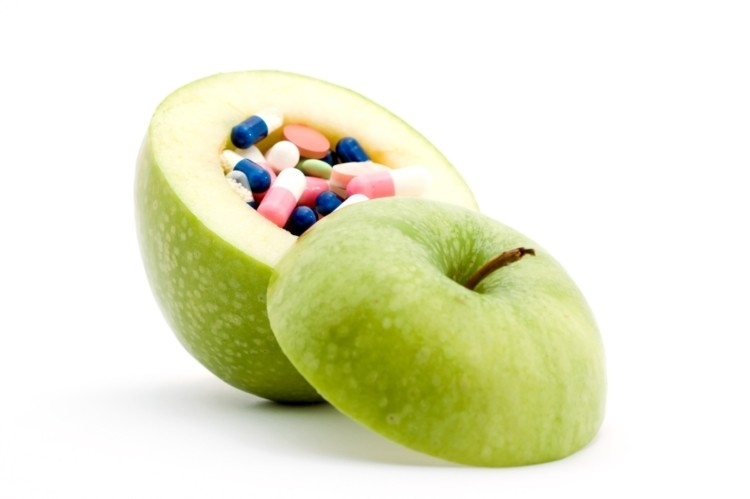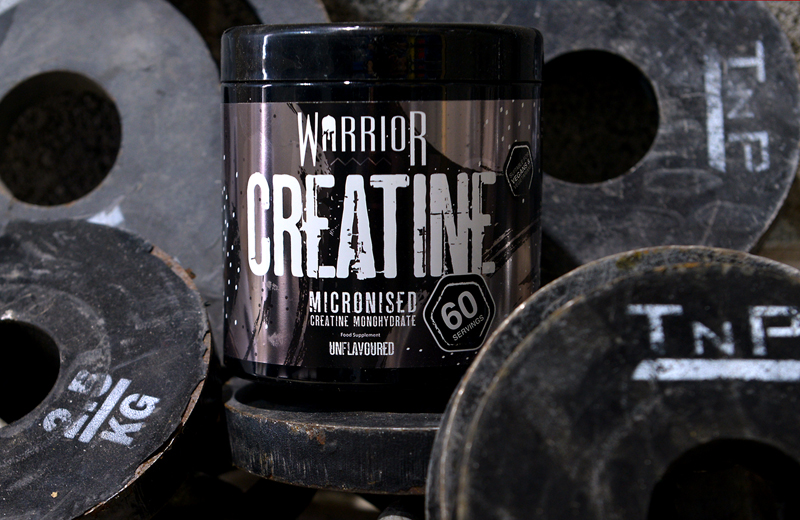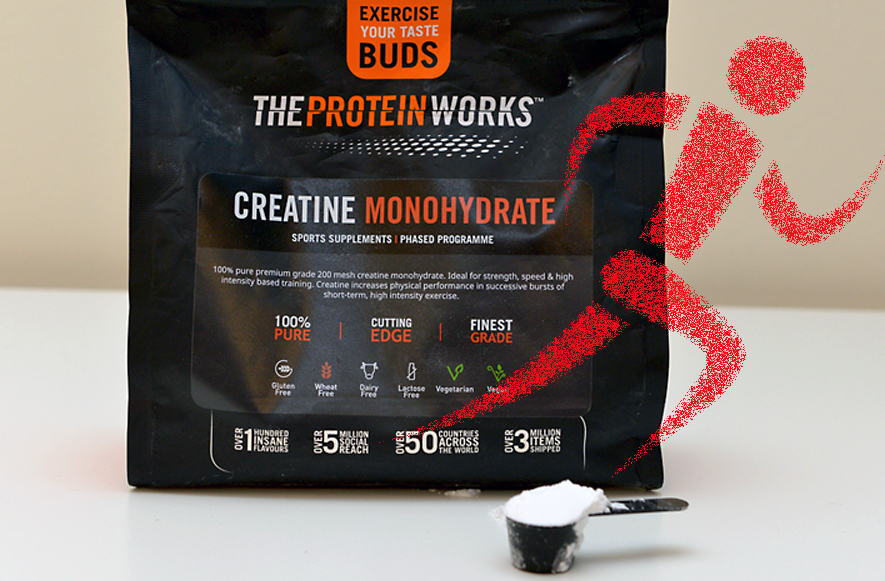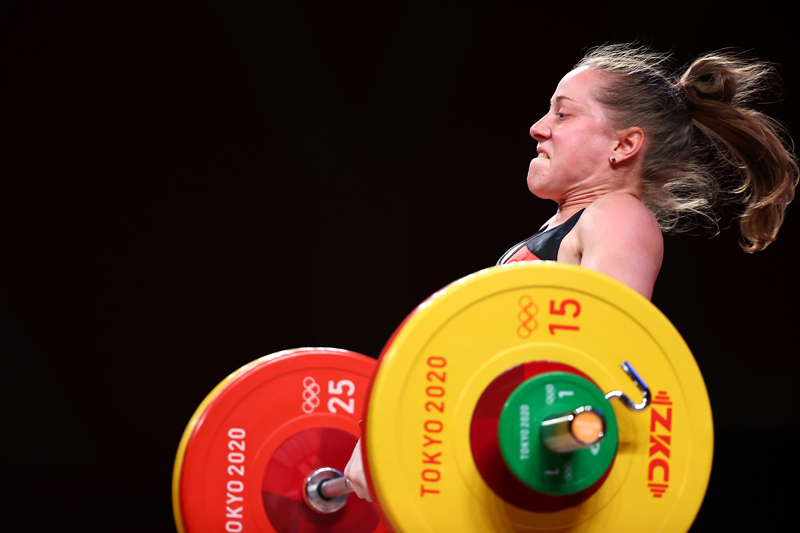You are viewing 1 of your 1 free articles. For unlimited access take a risk-free trial
Hydrogen supplementation: can it add sparkle to your performance?

Can the ingestion of dissolved hydrogen gas in water enhance endurance performance? Sports Performance Bulletin looks at what the science says and comes up with a verdict
Hydrogen is the lightest and most fundamental element in the universe, providing the nuclear fusion fuel for countless trillions of stars out there (including our sun). Here on Earth, hydrogen is no less important because when chemically combined with oxygen, it forms the most important substance of all for life – water. But while the Earth has over 130 trillion tons of water on its surface, containing around 15 trillion tons of chemically bound hydrogen, pure hydrogen (as the gas H2) is actually very sparse.Estimates of the amount of hydrogen in the air we breathe vary, but are typically around 0.6 parts per million(1). This is a tiny amount compared to the other gases we find in air – nitrogen, oxygen, argon, CO2 etc (see figure 1). The reason for the extremely low concentration of hydrogen is simple; while the Earth’s crust releases thousands of tons of pure hydrogen gas into the atmosphere each year, the Earth’s gravity is not strong enough to hold onto it. Hydrogen’s low density (lightness) means it quickly rises to the top of the atmosphere and is lost into space. In short, when you breathe in air – during exercise or at any other time – the amount of hydrogen gas you inhale is minuscule.
Figure 1: Concentration of gases in the atmosphere (parts per million)
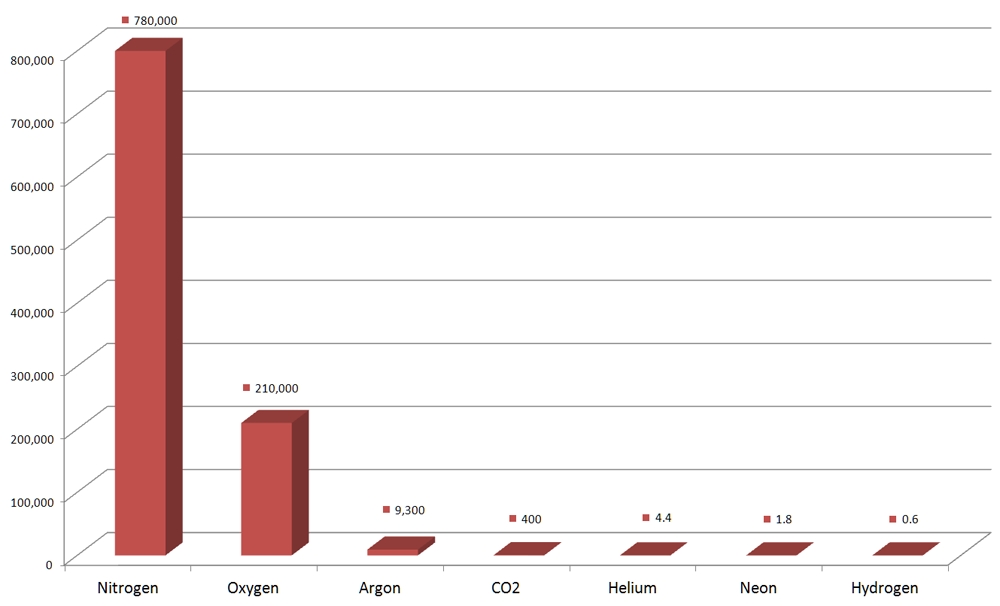
Figures show parts per million (PPM). At 0.6PPM, hydrogen is extremely scarce in the air.
The theory of hydrogen supplementation
Now we know more about the background to natural hydrogen, it’s time to try and answer this question: can inhaled hydrogen from a supplement that releases hydrogen when dissolved into water affect exercise performance? First off, let’s look at the theory of why inhaling hydrogen gas might provide a performance benefit. The chemistry of hydrogen gas is very different to hydrogen that is chemically bound to other elements – for example when bound to oxygen in water. In particular, hydrogen gas is very good at capturing or neutralising potentially harmful oxygen free radicals, which occur when energy is liberated in our cells during aerobic metabolism (ie using oxygen).The theory is that while some oxygen free radical activity is a natural part of oxygen metabolism, excessive or uncontrolled free radical damage is harmful, resulting in cell damage and inflammation. Our bodies possess sophisticated antioxidant defence systems, which become more efficient in trained athletes. However, during periods of intense training, the argument is that the use of supplements to boost these defences could be of benefit (for a more detailed discussion on the pros and cons of free radicals and antioxidants, see this article) – and this is where hydrogen gas steps in. These hydrogen supplements are in the form of effervescent tablets that release hydrogen gas when added to water. Some of the released hydrogen dissolves into the water so that when the water is consumed, a small amount of hydrogen is consumed too (see box 1).
Box 1: Hydrogen supplementation
The hydrogen supplements on the market consist of effervescent tablets, which release a small amount of hydrogen gas when added to a glass of water. Most of this gas escapes into the air, but a very small amount dissolves in the water, making it available to the body when the water is drunk. The actual amount of hydrogen consumed however is miniscule because compared to many other gases, it is not at all soluble in water. For example, water at 20C can dissolve 40mg of oxygen per litre of water. For nitrogen, the figure is 15mgs per litre. Carbon dioxide is much more soluble; a litre of water can dissolve 1,700mgs of CO2 (which a good reason why fizzy drinks are carbonated, not oxygenated!). However, the maximum amount of hydrogen that can be dissolved in a litre of water is just 1.6mg. This means that an athlete consuming a 300ml glass of hydrogen water would only be consuming around 0.5mg of hydrogen – that’s 1/2000th of a gram.If hydrogen is so poorly soluble in water, why not simply inhale some hydrogen gas from a cylinder I hear you ask? This would be extremely unadvisable; not only is hydrogen extremely flammable requiring thorough safety precautions, a mixture of hydrogen with air containing oxygen is highly explosive. A lung full of a hydrogen/air mix in the presence of a spark or naked flame would certainly make your training go with a bang, but not in the way you want. Click on the image below for a graphic demonstration of why you DO NOT want to take the risk of inhaling pure hydrogen!
Unlike many antioxidants, hydrogen can easily permeate cell membranes and the compartments such as mitochondria (the energy factories) within those cells(2). And when it enters the cells, hydrogen has been shown to produce anti-inflammatory and antioxidant effects(3). Even better, while it can deactivate oxygen radicals, hydrogen is not so reactive that it interferes with important oxygen signalling molecules such as NO and hydrogen peroxide, which are needed to stimulate muscle cells to adapt following training. This is a problem with a number of other antioxidant supplements, which appear to blunt training adaptations following exercise, resulting in worse performance – see this article(4). In short, ingesting hydrogen gas is claimed to offer the best of both worlds – improved antioxidant protection but without any impacts on training adaptation.
The practice of hydrogen supplementation
The use of hydrogen supplementation is a very new concept, which means there’s only a limited amount of scientific research in this area. Given the tiny amounts of hydrogen consumed when hydrogen-releasing tablets are added to water (see box 1), can these supplements provide any real benefits to athletes or are they just snake oil? Let’s see what the research says.*Hydrogen supplementation and gut flora
One of the first studies published on this topic looked at the consumption of hydrogen-rich water (HRW) on markers of DNA damage, antioxidant status and the diversity of gut flora in young soccer players(5). The players were divided into two groups. Over a 9-week period, one group consumed hydrogen-rich water daily while the second group consumed an effervescent drink containing no hydrogen. At the end of the study, markers of cell damage and inflammation in the HRW group were decreased while antioxidant activity was increased. Moreover, these changes seemed to exert a beneficial influence on gut flora in this group. The control group meanwhile experienced no significant benefits/changes.*Hydrogen supplementation and perceptual benefits
Another study published this year by an international group of scientists looked at the physiological and perceptual responses to an incremental exercise test after the administration of 600mls of HRW 30 minutes before exercise(6). In this study (a double-blinded placebo-controlled cross over study – the most scientifically rigorous design), twelve males complete a 10-minute warm-up on a stationary bike then rode three sets of consecutive 8-minute blocks at 2.0, 3.0 and then finally 4.0 watts per kilo of bodyweight. At the end of each 8-minute segment, the athletes’ cardio-respiratory responses, blood-lactate levels and ratings of perceived exertion (RPE) were assessed. The findings were as follows:- *At the end of the 3 watts per kilo and 4 watts per kilo stages, the HRW group experienced significantly lower levels of blood lactate (4.0 and 8.9mmol/L in HRW vs. 5.1 and 10.6mmol/L in placebo.
- *When the athletes consumed HRW, they experienced significantly lower levels of perceived effort (17.8 HRW vs. 18.5 placebo).
- *Ventilatory efficiency was improved when HRW was taken (ie breathing frequency dropped for a given workload).
Another study also explored the use of HRW on athletes’ performances during sub-maximal treadmill exercise(7). In this study, nineteen subjects performed a graded treadmill exercise test to exhaustion. Each subject was then examined two additional times in a randomized double-blinded, placebo-controlled crossover fashion. On one occasion, they received HRW, and on the other occasion, a placebo (in both cases consumed the day before and the day of the testing). Like the study above, the athletes seemed to experience less physiological stress when they had consumed HRW. In particular, they had a decreased heart rate during minutes 1-9 of the graded exercise test (121bpm HRW vs. 126bpm placebo) – even though the amount of oxygen they used at these workloads was the same.
*Hydrogen supplementation and performance
Reduced perception of effort and lower heart rates for a given workload are certainly worth having if you’re an athlete in regular training. However, the acid test is performance; when push comes to shove, does hydrogen supplementation help athletes to perform better? Because hydrogen supplementation is a such a new phenomenon, there’s almost no data on this. However, a brand new study looking at the effects of HRW on maximal performance during treadmill running has just rolled off the press(8).In this study (another double-blind crossover design) fourteen endurance-trained male runners were randomly assigned to ingest two doses of HRW (290mls in each dose) or a placebo on each occasion. The first dose of HRW was given before six sets of four-minute submaximal running bouts. The second dose was consumed before the maximal incremental running test that followed. At the end of each stage of the test, the researchers measured heart rates, perceived exertion, oxygen consumption (and finally) time to exhaustion. Compared to the ingestion of plain (placebo) water, consuming the HRW resulted in the following:
- *Perceived exertion at all stages – no differences.
- *Heart rate responses at all stages – no differences.
- *Oxygen consumption at all stages – no differences.
- *Time to exhaustion in the maximal running test – no difference.
Summary and recommendations
Hydrogen supplementation in the form of HRW is a very new supplementation approach, which means that there’s not much research been carried out to determine how effective it is. Of the studies that have been carried out, there do seem to be some benefits in terms of reduced perceived effort and physiological stress at sub-maximal workloads, although not all studies agree on this. HRW ingestion may also help improve gut flora and in inflammatory conditions. In terms of performance gains during maximal exercise, no study to date has shown any benefits.Should you consider using HRW supplements? There’s certainly no harm in trying them, although the cost is high - expect to pay around $60 (£50) for a bottle of 60 tablets! But if you’re looking for performance gains for race performance or setting that new PB, there’s simply not enough evidence at the moment to be able to confidently recommend them. Instead, athletes should focus on tried and tested methods of performance supplementation such as caffeine plus carbohydrate (see this article for comprehensive caffeine supplementation strategies).
References
- QJMS 1957; 83(358) P522-528
- Nat Med 2007;13:688-94
- Int J Clin Med 2016;7:32-76
- Nat Med 2007;13:673-4
- Med Gas Res. 2019 Jan 9;8(4):135-143
- Int J Sports Med. 2019 Oct 1. doi: 10.1055/a-0991-0268
- J Lifestyle Med. 2019 Jan;9(1):36-43
- Appl Physiol Nutr Metab. 2019 Nov 1. doi: 10.1139/apnm-2019-0553. [Epub ahead of print]
- Scand J Med Sci Sports. 2013 Feb;23(1):e21-31
Newsletter Sign Up
Testimonials
Dr. Alexandra Fandetti-Robin, Back & Body Chiropractic
Elspeth Cowell MSCh DpodM SRCh HCPC reg
William Hunter, Nuffield Health
Newsletter Sign Up
Coaches Testimonials
Dr. Alexandra Fandetti-Robin, Back & Body Chiropractic
Elspeth Cowell MSCh DpodM SRCh HCPC reg
William Hunter, Nuffield Health
Keep up with latest sports science research and apply it to maximize performance
Today you have the chance to join a group of athletes, and sports coaches/trainers who all have something special in common...
They use the latest research to improve performance for themselves and their clients - both athletes and sports teams - with help from global specialists in the fields of sports science, sports medicine and sports psychology.
They do this by reading Sports Performance Bulletin, an easy-to-digest but serious-minded journal dedicated to high performance sports. SPB offers a wealth of information and insight into the latest research, in an easily-accessible and understood format, along with a wealth of practical recommendations.
*includes 3 coaching manuals
Get Inspired
All the latest techniques and approaches
Sports Performance Bulletin helps dedicated endurance athletes improve their performance. Sense-checking the latest sports science research, and sourcing evidence and case studies to support findings, Sports Performance Bulletin turns proven insights into easily digestible practical advice. Supporting athletes, coaches and professionals who wish to ensure their guidance and programmes are kept right up to date and based on credible science.

